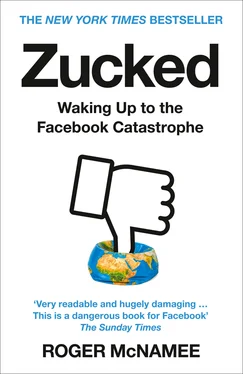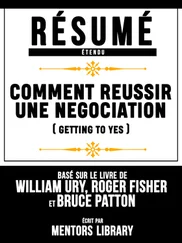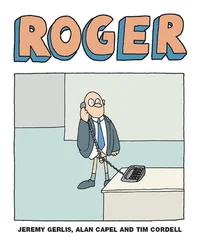“I understand, but that is not the issue. Everyone signed up to follow your vision for Facebook. If you believe in your vision, you need to keep Facebook independent. Yahoo and Microsoft will wreck it. They won’t mean to, but that is what will happen. What do you want to do?”
“I want to stay independent.”
I asked Zuck to explain Facebook’s shareholder voting rules. It turned out he had a “golden vote,” which meant that the company would always do whatever he decided. It took only a couple of minutes to figure that out. The entire meeting took no more than half an hour.
Zuck left my office and soon thereafter told Yahoo that Facebook was not for sale. There would be other offers for Facebook, including a second offer from Yahoo, and he would turn them down, too.
So began a mentorship that lasted three years. In a success story with at least a thousand fathers, I played a tiny role, but I contributed on two occasions that mattered to Facebook’s early success: the Yahoo deal and the hiring of Sheryl. Zuck had other mentors, but he called on me when he thought I could help, which happened often enough that for a few years I was a regular visitor to Facebook’s headquarters. Ours was a purely business relationship. Zuck was so amazingly talented at such a young age, and he leveraged me effectively. It began when Facebook was a little startup with big dreams and boundless energy. Zuck had an idealistic vision of connecting people and bringing them together. The vision inspired me, but the magic was Zuck himself. Obviously brilliant, Zuck possessed a range of characteristics that distinguished him from the typical Silicon Valley entrepreneur: a desire to learn, a willingness to listen, and, above all, a quiet confidence. Many tech founders swagger through life, but the best ones—including the founders of Google and Amazon—are reserved, thoughtful, serious. To me, Facebook seemed like the Next Big Thing that would make the world better through technology. I could see a clear path to one hundred million users, which would have been a giant success. It never occurred to me that success would lead to anything but happiness.
The only skin in the game for me at that time was emotional. I had been a Silicon Valley insider for more than twenty years. My fingerprints were on dozens of great companies, and I hoped that one day Facebook would be another. For me, it was a no-brainer. I did not realize then that the technology of Silicon Valley had evolved into uncharted territory, that I should no longer take for granted that it would always make the world a better place. I am pretty certain that Zuck was in the same boat; I had no doubt then of Zuck’s idealism.
Silicon Valley had had its share of bad people, but the limits of the technology itself had generally prevented widespread damage. Facebook came along at a time when it was possible for the first time to create tech businesses so influential that no country would be immune to their influence. No one I knew ever considered that success could have a downside. From its earliest days, Facebook was a company of people with good intentions. In the years I knew them best, the Facebook team focused on attracting the largest possible audience, not on monetization. Persuasive technology and manipulation never came up. It was all babies and puppies and sharing with friends.
I am not certain when Facebook first applied persuasive technology to its design, but I can imagine that the decision was not controversial. Advertisers and media companies had been using similar techniques for decades. Despite complaints about television from educators and psychologists, few people objected strenuously to the persuasive techniques employed by networks and advertisers. Policy makers and the public viewed them as legitimate business tools. On PCs, those tools were no more harmful than on television. Then came smartphones, which changed everything. User count and usage exploded, as did the impact of persuasive technologies, enabling widespread addiction. That is when Facebook ran afoul of the law of unintended consequences. Zuck and his team did not anticipate that the design choices that made Facebook so compelling for users would also enable a wide range of undesirable behaviors. When those behaviors became obvious after the 2016 presidential election, Facebook first denied their existence, then responsibility for them. Perhaps it was a reflexive corporate reaction. In any case, Zuck, Sheryl, the team at Facebook, and the board of directors missed an opportunity to build a new trust with users and policy makers. Those of us who had advised Zuck and profited from Facebook’s success also bear some responsibility for what later transpired. We suffered from a failure of imagination. The notion that massive success by a tech startup could undermine society and democracy did not occur to me or, so far as I know, to anyone in our community. Now the whole world is paying for it.
In the second year of our relationship, Zuck gave Elevation an opportunity to invest. I pitched the idea to my partners, emphasizing my hope that Facebook would become a company in Google’s class. The challenge was that Zuck’s offer would have us invest in Facebook indirectly , through a complicated, virtual security. Three of our partners were uncomfortable with the structure of the investment for Elevation, but they encouraged the rest of us to make personal investments. So Bono, Marc Bodnick, and I invested. Two years later, an opportunity arose for Elevation to buy stock in Facebook, and my partners jumped on it.
WHEN CHRIS KELLY CONTACTED ME, he knew me only by reputation. I had been investing in technology since the summer of 1982. Let me share a little bit of my own history for context, to explain where my mind was when I first entered Zuck’s orbit.
I grew up in Albany, New York, the second youngest in a large and loving family. My parents had six children of their own and adopted three of my first cousins after their parents had a health crisis. One of my sisters died suddenly at two and a half while I was in the womb, an event that had a profound impact on my mother. At age two, I developed a very serious digestive disorder, and doctors told my parents I could not eat grains of any kind. I eventually grew out of it, but until I was ten, I could not eat a cookie, cake, or piece of bread without a terrible reaction. It required self-discipline, which turned out to be great preparation for the life I chose.
My parents were very active in politics and civil rights. The people they taught me to look up to were Franklin Roosevelt and Jackie Robinson. They put me to work on my first political campaign at age four, handing out leaflets for JFK. My father was the president of the Urban League in our home town, which was a big deal in the mid-sixties, when President Johnson pushed the Civil Rights Act and Voting Rights Act through Congress. My mother took me to a civil rights meeting around the time I turned nine so that I could meet my hero, Jackie Robinson.
The year that I turned ten, my parents sent me to summer camp. During the final week, I had a terrible fall during a scavenger hunt. The camp people put me in the infirmary, but I was unable to keep down any food or water for three days, after which I had a raging fever. They took me to a nearby community hospital, where a former military surgeon performed an emergency operation that saved my life. My intestine had been totally blocked by a blood clot. It took six months to recover, costing me half of fourth grade. This turned out to have a profound impact on me. Surviving a near-death experience gave me courage. The recovery reinforced my ability to be happy outside the mainstream. Both characteristics proved valuable in the investment business.
My father worked incredibly hard to support our large family, and he did so well. We lived an upper-middle-class life, but my parents had to watch every penny. My older siblings went off to college when I was in elementary school, so finances were tight some of those years. Being the second youngest in a huge family, I was most comfortable observing the big kids. Health issues reinforced my quiet, observant nature. My mother used me as her personal Find My iPhone whenever she mislaid her glasses, keys, or anything. For some reason, I always knew where everything was.
Читать дальше






